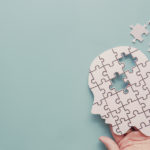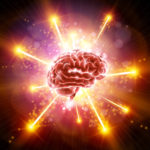By David Blyweiss, M.D., Advanced Natural Wellness
Maybe you’ve gone into the kitchen and don’t remember why, or you can’t recall a familiar name during a conversation. You may have even missed an appointment because it slipped your mind. Memory lapses can occur at any age, but we tend to get more upset by them as we get older because we fear they’re a sign of dementia, or loss of mental acuity. The fact is, significant memory loss in older people isn’t a normal part of aging—but is due to organic disorders, brain injury or neurological illness, with Alzheimer’s being among the most feared.
Most of the fleeting memory problems that we experience with age reflect normal changes in the structure and function of the brain. These changes can slow certain cognitive processes, making it a bit harder to learn new things quickly or screen out distractions that can interfere with memory and learning. Granted, these changes can be frustrating and may even seem far from benign when we need to learn new skills or juggle myriad responsibilities. But there’s usually nothing to worry about. That’s not to say you should ignore these irksome symptoms. Here are five strategies you can use to protect and sharpen your mind.
1. Keep learning: Challenging your brain with mental exercise is believed to activate processes that help maintain individual brain cells and stimulate communication among them. Many people have jobs that keep them mentally active, but pursuing a hobby or learning a new skill can function the same way. Read, join a book group, play chess or bridge, write your life story, do crossword or jigsaw puzzles, take a class, pursue music or art, or design a new garden layout. At work, volunteer for a project that involves a skill you don’t usually use. Building and preserving brain connections is an ongoing process, so make lifelong learning a priority.
2. Repeat what you want to know: When you want to remember something you’ve just heard, read or thought about, repeat it out loud or write it down. That way, you reinforce the memory or connection. For example, if you’ve just been told someone’s name, use it when you speak with him or her. If you place one of your belongings somewhere other than its usual spot, tell yourself out loud what you’ve done. And don’t hesitate to ask for information to be repeated.
3. Space it out: Repetition is most potent as a learning tool when it’s properly timed. It’s best not to repeat something many times in a short period, as if you were cramming for an exam. Instead, re-study the essentials after increasingly longer periods of time—once an hour, then every few hours, then every day. Spacing out periods of study is particularly valuable when you are trying to master complicated information, such as the details of a new work assignment. Research shows that spaced rehearsal improves recall not only in healthy people but also in those with certain physically-based cognitive problems, such as those associated with multiple sclerosis.
4. Make a mnemonic: This is a creative way to remember lists. Mnemonic devices can take the form of acronyms (such as RICE to remember first-aid advice for injured limbs: Rest, Ice, Compression, and Elevation) or sentences (such as the classic “Every good boy does fine” to remember the musical notes E, G, B, D, and F on the lines of the treble clef).
Are You Suffering From...
- Love handles and a pot belly
- Romance that isn't what it used to
- Forgetfulness and inattention
- Low (or no) strength and endurance
- A sex drive that's shifted into neutral...or worse
If so...you may have Mature Male Burnout. Click here to discover more about this unique condition and what you can do about it.
5. Nourish your brain: Along with an antioxidant-rich diet (think blueberries) that is also high in omega-3 fatty acids from fish, flax and walnuts, I recommend taking a brain-specific supplement that supports both memory and cognition. Personally, I use MEM-Plex by Uniscience Group because of its unique combination of nutrients: an array of B vitamins reduces homocysteine levels (elevated homocysteine can cause brain atrophy and vascular disease and may be related to the development of dementia and possibly Alzheimer’s disease), two forms of choline, which helps regulate bioelectrical activities in the brain, and a variety of brain-boosting herbs to give you that mental edge.
When it comes to your brain, it’s “use it or lose it.” Exercising it regularly and giving it the nutrition it needs can help keep your brain in top form so you can stay sharp at any age.
References:
Joseph JA. Grape juice, berries, and walnuts affect brain aging and behavior. Journal of Nutrition. 2009;139:1813S-1817S.
Sachdev PS. Relationship between plasma homocysteine levels and brain atrophy in healthy elderly individuals. Neurology. 2002;58:1539-1541.
Silveri MM. Citicoline enhances frontal lobe bioenergetics as measured by phosphorus magnetic resonance spectroscopy. NMR in Biomedicine. 2008;21:1066-1075






